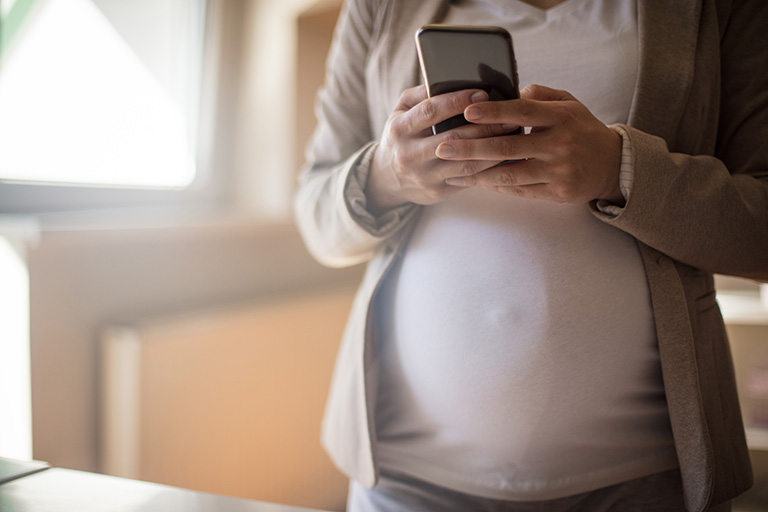 Specialist midwife for IT at United Lincolnshire Hospitals NHS Trust, Lorri Allport looks at how technology has helped support women through pregnancy, birth and post-natal care in rural Lincolnshire during the COVID-19 pandemic.
Specialist midwife for IT at United Lincolnshire Hospitals NHS Trust, Lorri Allport looks at how technology has helped support women through pregnancy, birth and post-natal care in rural Lincolnshire during the COVID-19 pandemic.
The COVID-19 pandemic leaves me and my fellow midwives with a dilemma.
We need to support women through pregnancy. We need to examine them, take blood and organise scans – at the same time, we must reduce the number of times they come into hospital.
So, how do we do that? The answer, in part, has been provided by technology. I am the digital midwife for the United Lincolnshire Hospitals NHS Trust and the move to video consultations has been extremely positive.
With the support of our Trust implementation team, we set up Attend Anywhere, a video call service for patients with pre-arranged appointments.
We were previously looking at video platforms with our Local Maternity Service, but the pandemic has certainly moved this along much more quickly. The software is secure and women can be assured that communications are confidential. The links are easily accessible from the trust’s website and people have their own identifier for logging on.
Being able to offer women a video call rather than a phone call has been important. Seeing our patients as well as hearing them makes a huge difference.
These are worrying times. Women are anxious about their pregnancy, about catching COVID-19 and about the new reality of childbirth during this situation. Their partner can’t always be with them in the hospital, for example.
Being able to see you and put a face to a name helps our women feel more relaxed. We are better able to detect anxieties and reassure them.
We can have video calls with women on their own or they can include their partner. The partner can ask questions and be part of the conversation. We’ve had feedback from the partners who have said they have been grateful for that opportunity.
Another benefit of the system is being able to offer joint video consultations. Our mental health specialist midwife works with the Primary Health Care Team, who sit within a partner trust. Using Attend Anywhere meant we were able to bring the mental health nurse on board, so even though both the midwife and the mental health nurse were in different settings, they could still talk to the pregnant woman at the same time.
One woman said it was just like having the midwife in the room with her because the quality of the call was so good. That was reassuring both for her and for us.
It is satisfying to know that despite the difficult circumstances we find ourselves in, we are still offering a good service to our pregnant women.
Similarly, our breastfeeding midwives have had great success in supporting new mums at home with feeding issues. The video consultations are filling the gap as community teams have had to reduce post-natal home visits.
One of our breastfeeding specialists, Emily, says the mothers have responded well to the video calls. The midwife can view the baby feeding and offer advice about latching on. Likewise, the mums have been able to watch our feeding demonstrations using dolls.

As well as rolling out Attend Anywhere to ante-natal clinics, we are extending the service into the family liaison room. This room was specially set up for couples to meet up with a midwife to talk over events that may have been troubling or upsetting, such as an emergency caesarean or an unexpected intervention such as forceps delivery.
We can now offer a secure space through video to deliver this same service, which can help people better understand what has happened to them.
There is no doubt that everyone is missing physical contact. Midwifery is a tactile profession but obviously we must be careful. When women come into hospital, we have to wear masks and gloves.
It’s not normal and it is challenging, but the move to a video platform has been very positive and I’m sure we will continue to use it in the future.
One-to-one appointments will continue to be important, but Lincolnshire is a very rural area and we have five peripheral clinics. Not everyone has a car and public transport is limited. If we can minimise that amount of travel, I think that will be of great benefit to our pregnant women.
The recent transition to an electronic maternity record is equally important, especially when appointments are held on the phone or over video calling. We’d be lost without them during this time. The maternity records also enable vital information to be shared with other hospitals and clinics. All our clinicians have access to our Maternity Information System wherever they are working from. That can only benefit a mum-to-be, who can give birth at any place, any time.
The COVID-19 pandemic has been very challenging but the technological adaptations we have had to make will be enduring in keeping us better connected.








